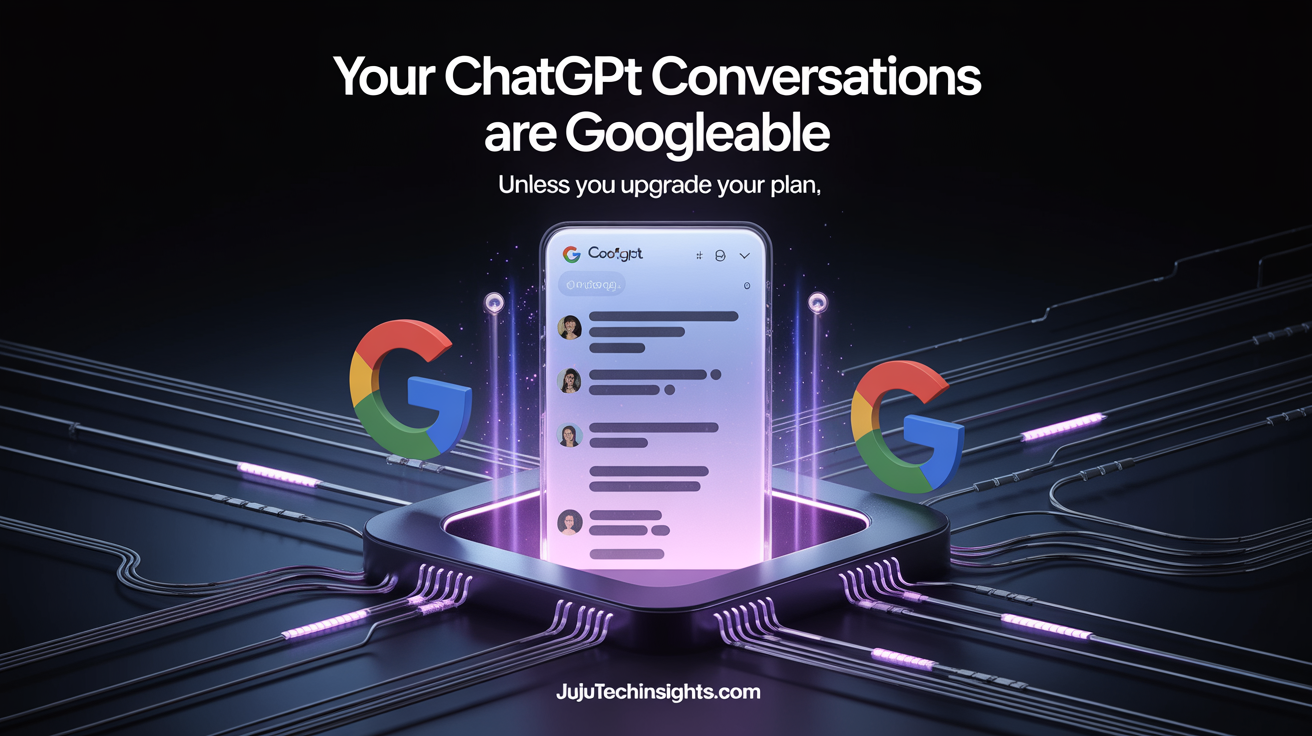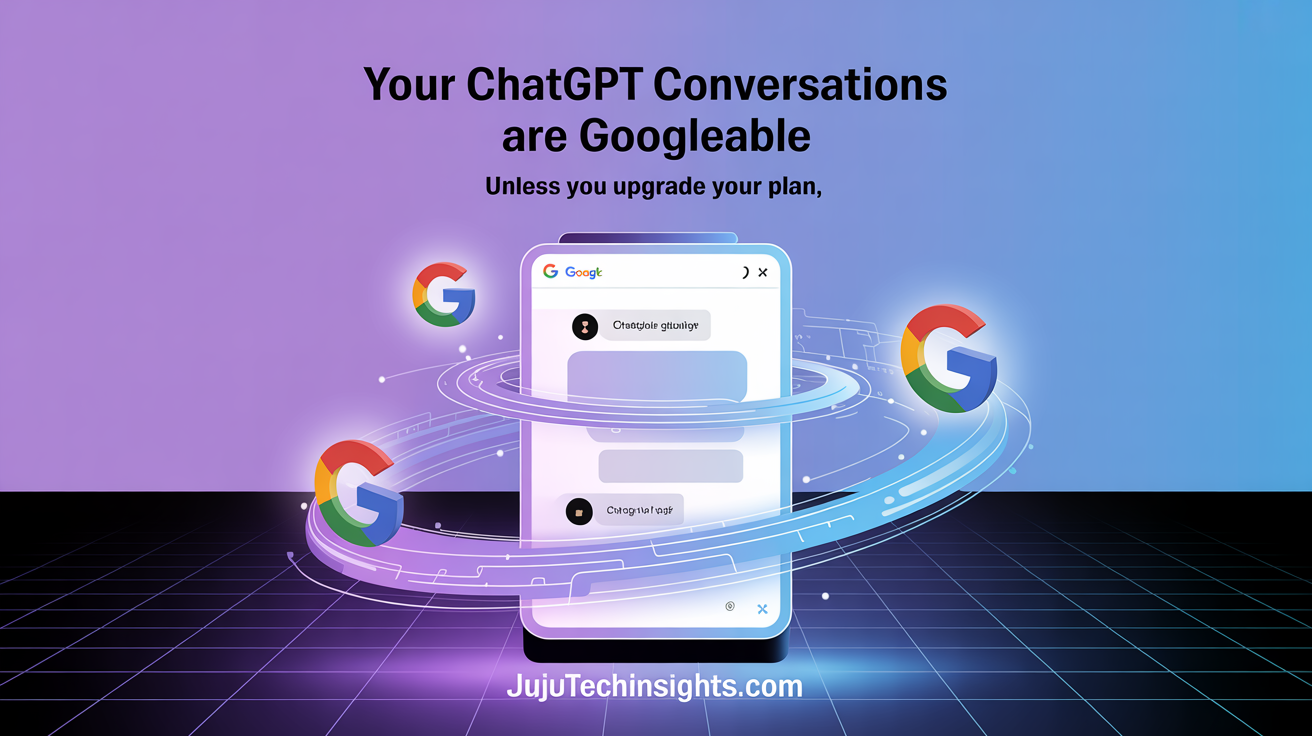Google Is Indexing Public ChatGPT Links, Here’s What That Means for You
Google has quietly started indexing public ChatGPT shared links, making your AI conversations searchable across the entire web. If you’re using the free or standard ChatGPT tiers, your shared chats could now appear in Google search results for anyone to find.
What’s Actually Happening
When you share a ChatGPT conversation using the public link feature, Google’s web crawlers can now access and index that content. This means your shared conversations become discoverable through Google Search, anyone searching for related keywords might stumble upon your AI chats, the conversations appear in search results just like any other web page, and only ChatGPT Enterprise customers are exempt from this indexing.
This isn’t a bug or oversight—it’s how the web fundamentally works. Public links are, by definition, public. But many users didn’t realize their AI conversations could become this discoverable.
The “Make Chat Discoverable” Confusion
Many users think unchecking the “make chat discoverable” box when sharing protects them from Google indexing. This is not true. That checkbox primarily controls whether your chat appears in ChatGPT’s own internal discovery features and shared chat galleries.
However, if you create a public share link, Google can still potentially crawl and index that URL regardless of the discoverable setting. The checkbox controls visibility within ChatGPT’s ecosystem, not web-wide privacy.
What “make chat discoverable” actually does:
The feature controls internal ChatGPT discovery features, affects whether the chat appears in ChatGPT’s shared galleries, but does NOT prevent search engine crawling of your public URL.
For true privacy protection:
Don’t create shared links at all, keep conversations only in your personal ChatGPT interface, and use screenshots or copy-paste for sharing specific parts.

Why This Matters for Different Users
For casual users: That brainstorming session about your startup idea or personal project could now be indexed. Someone googling your company name plus relevant keywords might find your AI-generated business plans or creative concepts.
For professionals: Shared conversations about work projects, client strategies, or industry insights are now potentially searchable. A competitor could theoretically find your AI-assisted market research or product development discussions.
For researchers and students: Academic discussions, research methodologies, or study materials shared via ChatGPT links could surface in search results, potentially affecting originality or competitive advantage.
Paid Customers
ChatGPT paid customers get a different treatment. Their shared links remain unindexed, giving them the privacy that comes with a paid business tier. This creates a clear two-tier system: pay for privacy, or accept that your AI conversations might become public knowledge.
This aligns with OpenAI’s broader business model of offering enhanced privacy and security features to enterprise customers while monetizing the free tier through data and accessibility.
What You Can Do Right Now
Before sharing any ChatGPT conversation:
Assume it will be indexed and searchable regardless of the “discoverable” setting, remove sensitive information, names, or proprietary details, consider whether you’d be comfortable with competitors or colleagues finding this content, and use generic examples instead of real business scenarios.
Review your existing shared links:
Check your ChatGPT sharing history for potentially sensitive conversations, delete or unshare links that contain information you’d prefer to keep private, and remember that previously shared links may already be indexed.
Alternative approaches:
Use screenshots instead of shared links for sensitive content, copy and paste relevant portions into other documents, or consider upgrading to Enterprise if privacy is critical for your use case.
The Bigger Picture
This development reflects the growing intersection between AI tools and traditional web infrastructure. As AI-generated content becomes more prevalent, search engines are adapting to index and surface this material just like any other web content.
It also highlights the evolving privacy landscape around AI interactions. What feels like a private conversation with an AI assistant can quickly become public knowledge when shared links enter the equation.
For Google, indexing ChatGPT conversations represents valuable, human-curated content that users are actively sharing and finding useful. It’s a natural extension of their mission to organize the world’s information.
Moving Forward
The key takeaway isn’t to stop using ChatGPT’s sharing feature, but to use it more deliberately. Treat shared ChatGPT links the same way you’d treat any public blog post or social media update and assume it will be found and read by people beyond your intended audience.
This shift also emphasizes the value proposition of paid AI services. As AI tools mature, privacy and control features are becoming key differentiators between free and premium tiers.
The era of assuming AI conversations are private by default is ending. Whether that’s concerning or liberating depends on how you’ve been using these tools and how comfortable you are with your AI brainstorming sessions becoming part of the public record.
